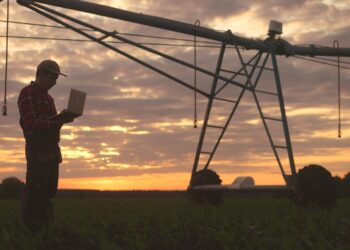Analysts believe Canada could finally restart delayed projects.
A year ago, Enbridge Inc.’s $9 billion Line 3 and TC Energy Corp.’s $8 billion Keystone XL pipeline projects, as well as, of course, the $12.6 billion Trans Mountain expansion had been mired in regulatory or legal delays for so long that there were questions about whether they would ever be built.
Indeed, the past decade was largely one to forget for Canadian pipeline companies trying to build major new export projects.
Saskatchewan Premier Scott Moe told an audience at the Canada Institute in Washington on Friday that the delays resulted in negative economic impacts that extend beyond the energy sector.
For instance, about 10% of Saskatchewan’s energy products are currently moving on rail cars, which creates challenges for other sectors looking to move their products.
But there are signs that the pipeline industry is finally turning around. Major court wins in the first six weeks of 2020 have cleared the way for construction to begin on the Line 3 and Keystone XL pipelines in the US and to continue on Trans Mountain.
The Minnesota Public Utilities Commission voted to re-approve the Line 3 pipeline across the state, removing the last obstacle there for Enbridge. The Federal Court of Appeal dismissed the last remaining legal challenge to Trans Mountain.
Following favorable decisions on Keystone XL, Line 3 and Trans Mountain, Alberta Energy Minister Sonya Savage told journalists she was confident the projects will move quickly now.
Others are similarly optimistic, yet the news isn’t all good. The updated cost estimate for building the 590,000-barrels-per-day pipeline expansion to the West Coast have jumped 73% to $12.6 billion from $7.3 billion in 2018.
About half of those higher costs, Anderson said, resulted from changes such as having more thick-walled pipeline sections after the federal government bought the pipeline system from Houston-based Kinder Morgan Inc. in 2018 for $4.5 billion.
Other additional costs were because of market changes. At the time construction first started on Trans Mountain in 2018, Anderson said there weren’t any other pipelines being built.
But since construction was delayed by a Federal Court of Appeal ruling, TC Energy is in the process of building the $6.6-billion Coastal GasLink project through northern British Columbia and gearing up to build Keystone XL, while Enbridge is also readying to build the US portion of Line 3.
One result of the improved outlook for both oil and natural gas pipelines is that analysts believe generalist investors might be interested in jumping back into Canadian oil and gas stocks. Investors have generally shied away from the industry, but some strategic countercyclical investors stayed behind and bought up assets worth billions of dollars.












